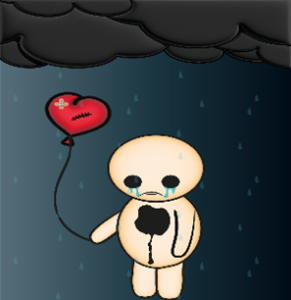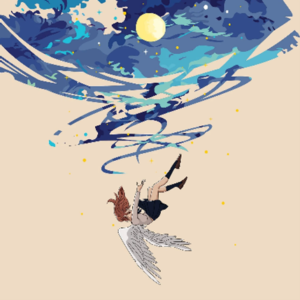This blog began with the intention of sharing my experience of living with lupus, hoping to help other people by sharing my journey. My momentum at the beginning of my blog was spirited. I tried to post consistently. But (there is always a but), I haven’t written in a while. A long while and I’m super embarrassed. I realize that life and lupus can be overwhelming. I have a plethora of excuses. I believe my reasons are justifiable and I hope that by sharing my pain and journey, you will feel less alone and validated for whatever you are experiencing. Taking an occasional break in your life, or pausing whatever you are working on, for necessities of life’s minutiae can be essential to your health. Especially when you have lupus or any other chronic illnesses!
The most prominent reason that I stopped writing is because I was suffering from severe heart break and loss which evolved into PTSD (post-traumatic stress disorder).
My writing paused during the last year of my mother’s life. I was consumed with taking care of her during that time. I honestly do not know how I was able to provide any assistance and support to her well-being because of the extreme fatigue and debilitating symptoms that I endure from my chronic illnesses. Yet somehow, I was with her every other day while she was in the hospital and later in hospice care. What may have helped was that her husband (my Stepfather) and I took turns, alternating days on who would be with my mother.
I didn’t just visit my mom, I cared for her, alongside the angelic nurses. I washed, brushed, and styled her hair. I fed her. I changed the sheets when she got out of her bed. I changed her hospital gown whenever needed. I brought her anything she needed or wanted. When she was in hospice and craving Mexican food, you bet your bippy that I delivered her favorite tacos. I decorated her room for Christmas and bought her a teddy-bear soft blanket because her skin was getting super sensitive, and everything was bothering it. (My cat is now obsessed with this blanket, so she owns it and my mom would love that fact.)
All the while I was maintaining my personal demanding medical care: getting regular IVIG infusions, attending numerous doctor appointments, constantly filling prescriptions (which often feels like a part-time job), etc. It is a gross understatement to say that all of the running around and taking care of my mom, my family, and me was physically strenuous and emotionally exhausting. It’s a miracle that I didn’t end up in a hospital room next to her from over-doing everything. It’s a mystery how I endured it all. I was psychologically on a phantom autopilot. We all have reserves of emergency energy in times of need. But my mother’s last year with us was a marathon for me, pulling energy reserves from somewhere out in the ethers. It’s amazing what you can handle with simple will and determination. It is more than you can imagine. Trust me.
When my mom passed away, I froze, and then I crashed. It was inevitable.
The faintest waft of a breeze could have easily toppled me over. I was a shell of myself, subsisting on borrowed energy and sugar. (Too much sugar, I’ll admit). At this point in my life, I lacked experience. I had never lost anyone close to me. Correction, I had never lost a human whom I was close with, but I have experience with losing a fur baby. And that was about to re-occur. Because shortly after my mother died, our dog went over the rainbow bridge. She joined our other fur babies in heaven. My grieving process ferociously began. All creativity and the last crumble of my motivation abandoned me. But the loss of a loved one was about to re-occur.
Five months after my mother’s passing, my little brother committed suicide. His death figuratively killed me. I became a ghostly image of myself. A shell going through the motions of surviving life. One devastating factor compounding my brother’s death is that we were estranged for a few years. Long story short, we reconnected a couple of years before he passed away. He lived on the west coast, while I live on the east coast. We talked and messaged each other regularly but had not seen each other since we reconnected. I was planning a visit to see him and to meet his two toddler sons. I day dreamed about getting a giant crushing bear-hug from him when we finally saw each other in person. My brother was a big, strong guy with the sweetest disposition. He’s the kind of guy who would absolutely, without a doubt, pick me up into a squashing embrace when we saw each other. Sadly, I will never get that hug.
As if all of this was not enough emotional torment, life decided to pour on some more compounding bereavement. My best friend passed away a few months after I lost my little brother. My best friend suffered from multiple sclerosis. When I say “suffered,” I truly mean it. During the last years of her life, she was too sick to leave her home. She lived about an hour away from me. I visited her as often as I could. But I’m embarrassed to admit that it had been a couple months since my last visit when she died. I was wrought with guilt over not seeing her more often. She could not leave her house. She was sick and lonely, and I should have been there more for her. While I am also sick with lupus and many other medical issues, I was more able-bodied than her and I absolutely took that for granted.
In the span of 13 months, I lost my mother, our dog, my little brother, and my best friend. I was paralyzed with grief.
Depression swathed me with its gritty claws.
Losing my closest loved ones in such a short amount of time gave me PTSD. The exhaustion and depression, coupled with lupus and PTSD overwhelmed me and conquered my soul. All momentum in my writing ceased. My dream is to be a writer. I couldn’t write while encased in this crushing grief and depression. My dream of writing wanted to die alongside my loved ones.
There was no doubt that I needed help. My psychiatrist recommended a particular form of therapy called EMDR (Eye Movement Desensitization and Reprocessing). This type of therapy is designed to target PTSD and trauma. Here is a more clinical description about this form of therapy, which is quoted directly from the EMDR International Association (EMDRIA}:
“EMDR is a structured therapy that encourages the patient to focus briefly on the trauma memory while simultaneously experiencing bilateral stimulation (typically eye movements), which is associated with a reduction in the vividness and emotion associated with the trauma memories. Eye Movement Desensitization and Reprocessing (EMDR) therapy is an extensively researched, effective psychotherapy method proven to help people recover from trauma and PTSD symptoms.” You can find more information about this from the EMDRIA website, https://www.emdria.org/about-emdr-therapy/
I have been through so much therapy throughout my life that I had no desire to choose this route. Because life and lupus can be overwhelming and I often need help, I knew I had to try something to break out of my depression shell. With as much reluctance and procrastination as I could muster, I begrudgingly sought out one of these specialized therapists. I owed it to my family to try something, anything to blaze a pathway out of my grief.
Best.
Decision.
Ever!
This therapy was a life saver. Where other forms of talk therapy never yielded results and notable changes in me, EMDR therapy finally generated constructive and positive results. I started releasing the shock, devastating pain, and all-consuming guilt. The joy and happiness with the blessings of my life returned to my core. I am no longer on phantom autopilot. I am present. I am ready to start dreaming again. I’m ready to resume writing again. I humbly thank you for reading.
***For suicide help: If you find yourself or a family member in a life-threatening situation, call 911 or go to an emergency room. If you are in a crisis, you can call the National Suicide Prevention Lifeline 24 hours a day, 7 days a week, at 800-273-8255. Text HOME to the Crisis Textline at 741741. If you feel you’re at immediate risk, reach out to a trusted friend, family member, or healthcare professional, or go to the nearest emergency room. You can also call or text ‘988’ (or chat online on 988 Suicide & Crisis Lifeline’s website) for free, confidential, and immediate help. Here is the website: https://988helpline.org/





